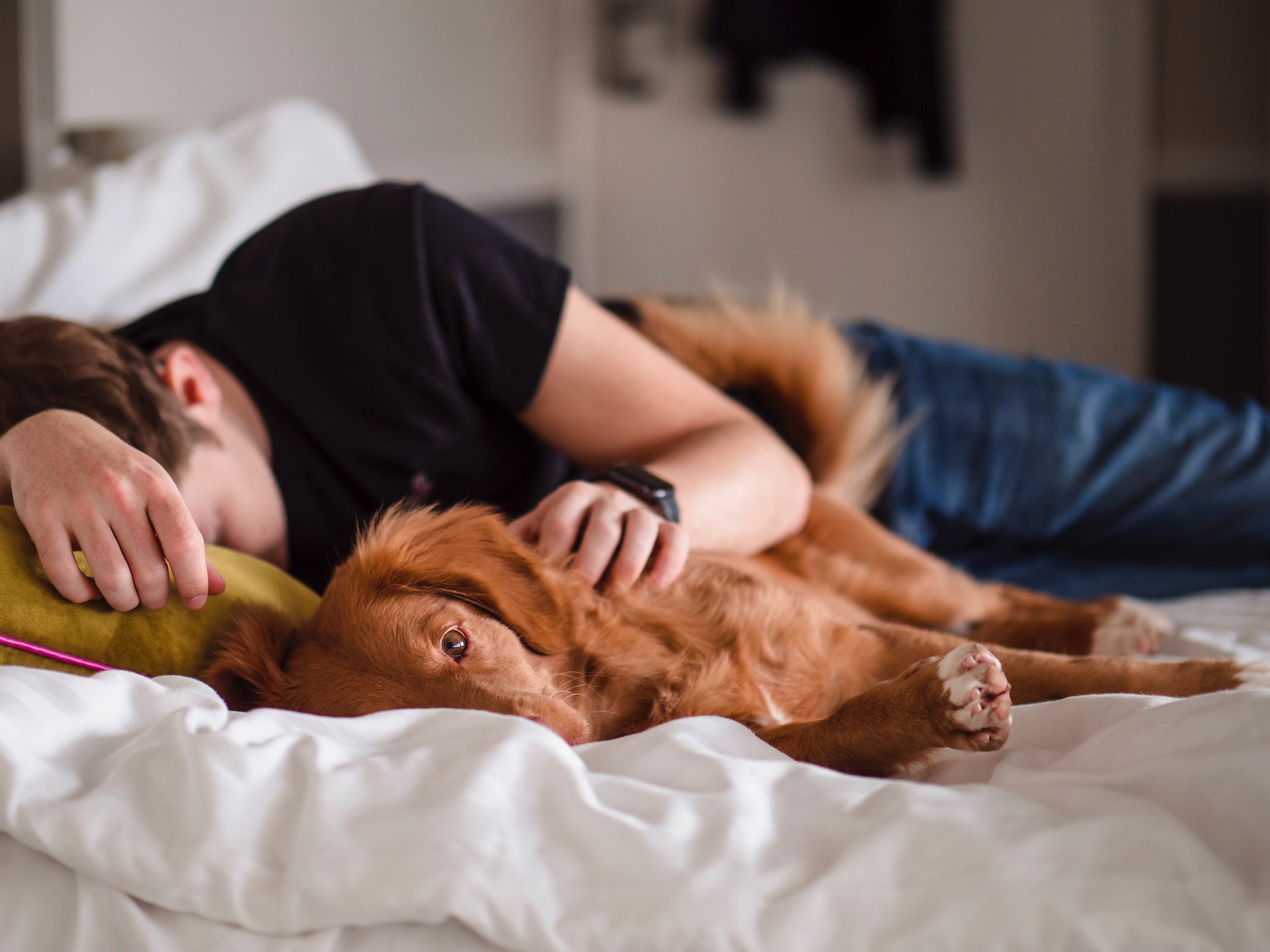
The World Narcolepsy Awareness Day is September 22nd and it is estimated that about three million people worldwide suffer from Narcolepsy but only 25% of them are diagnosed and provided with treatment. Did you know that historically important figures like Winston Churchill (UK prime minister during WWII) and Harriet Tubman (anti-slavery advocate) lived with Narcolepsy?
What Is Narcolepsy?
The definition of Narcolepsy provided by the National Institute of Neurological Disorders and Stroke (NINDS) describes it as a chronic neurological disorder that affects the brain’s ability to control sleep-wake cycles. People with narcolepsy may feel rested after waking, but then feel very sleepy throughout much of the day. Many individuals with narcolepsy also experience uneven and interrupted sleep that can involve waking up frequently during the night.
Narcolepsy is a lifelong health condition and its symptoms may vary in intensity across the years. Persons who are not diagnosed properly may suffer severe psychological, social, and cognitive problems. Narcolepsy can significantly impact your academics, work, social life, and daily activities.
There are two major types of narcolepsy as defined by the (NINDS):
Type 1 — previously known as narcolepsy with cataplexy.
The individuals either have low levels of a hormone called hypocretin or they report cataplexy and excessive daytime sleepiness. The hypocretin hormone has a major role in helping your brain keep your body awake.
Type 2 — previously known as narcolepsy without cataplexy.
Individuals with Type 2 Narcolepsy experience excessive daytime sleepiness but usually do not have muscle weakness triggered by emotions. These individuals tend to have less severe symptoms and have normal levels of the brain hormone hypocretin.
Narcolepsy Symptoms
Narcolepsy is diagnosed by doctors who study sleep cycles, sleep disorders, and hormones. A neurologist can aid your family doctor in diagnosing you properly. You may need to go through several sleep tests before you are diagnosed with Narcolepsy. This condition appears in individuals from ages 7 to 25 and it continues throughout their life. Notable symptoms of Narcolepsy that doctors look for are:
1. Irregular sleep patterns;
2. Excessive daytime sleepiness;
3. Cataplexy (sudden loss of muscle tone);
4. Hallucinations at the beginning of the night or upon awakening;
5. Sleep paralysis.
Sleep paralysis is very troubling as this is an episode of temporary inability to move or speak that occurs directly after falling asleep or waking up. Individuals who experience sleep paralysis retain consciousness during episodes and report hallucinations and a sensation of suffocation.
However, the biggest problem may be the cataplexy episodes. These episodes are defined by a sudden loss of muscle tone and cause your body to fall down. Need to say, individuals with Narcolepsy may suffer traumas to their head and hands that can be severe.
Narcolepsy Treatment
Unfortunately, there is no cure for Narcolepsy but scientists have improved their understanding of the condition in the last decade considerably. At the time of writing this, there are several studies that investigate the effectiveness of medications like Armodafinil, Sodium Oxybate, PROVIGIL (Modafinil), and Amphetamine-like stimulants. Individuals who suffer from Narcolepsy have to deal with a lot of challenges on a daily basis. You do not need to face these challenges alone and many healthcare professionals recommend using service dogs when possible.
Can You Get A Service Dog For Narcolepsy
Narcolepsy is considered a physical disability and individuals can benefit from using a service dog. Countries like the United States, the United Kingdom, the Netherlands, and even parts of Canada and Australia make it possible for you to self-train a service dog. Service dogs are animals that are individually trained to respond to the needs of an individual. Service dogs can help keep you safe, serve as emotional support, and make it easier for you to cope with the Narcolepsy symptoms. Narcolepsy Service Dogs are not the right fit for every person who suffers from this neurological condition. Please, talk to your family doctor about how a service dog may impact your daily life.
How To Choose a Service Dog For Narcolepsy
If you have an allergy you may want to opt for a hypoallergenic dog breed and you can find advice on the topic in our article “How to pick a service dog - Hypoallergenic Dog Breeds”. If you are not sure how to adopt a puppy for training purposes then I recommend reading “How to Choose a Reliable Breeder for Your Service Dog” and you might read “Should I Get a Dog? 6 Must-Known Things”. Your choice should be based on several factors and you should consult with your preferred medical care provider. The factors that you will need to consider are:
1) Do you have the energy, time, and financial security to care for a service dog?
Service dogs require regular walks, some require daily grooming and all of them will need some play time with you to bond and stay mentally stimulated. Of course, you will need to provide them with food, water, and veterinary care properly.
2) Do you have a suitable living space?
Small dogs can do well in apartments with limited space but you might want a big dog that can help brace you if you experience a cataplexy episode.
3) Are you living with other people like family, friends, or flatmates?
If you are living with other people you should consider carefully how a service dog will impact their living arrangements. Some individuals with Narcolepsy may require caregivers who can help with taking care of a service dog.
Narcolepsy Service Dog Training
There are a few ways how you can get a Narcolepsy Service Dog. The first one is to buy a trained service dog from a dog training institution which we have explained in our article “How to Apply for a Service Dog”. You may want to engage in self-training a service dog for yourself which can be very affordable as explained in our article “Is Service Dog Training Free?”. Of course, you can work with a local dog trainer as well if you prefer the assistance of a professional dog trainer. If you would prefer to get a trained service dog we recommend you reach out to organizations like Assistance Dogs Intentional which can direct you to dog training schools in your area.
Our school provides self-trained service dog training courses and you may want to take a look at our Online Intensive Service Dog Training Course. The course includes lessons on how to train your dog to retrieve a pouch with medicine (or other items) which can be useful for patients with Narcolepsy. If you want to have your dog with you anywhere the course comes with public access training. Narcolepsy Service Dogs are protected by the law when it comes to housing and business open to work with the public.
What Types Of Service Dogs for Narcolepsy Are There?
Narcolepsy Alert Service Dogs are trained to recognize the signs of an oncoming narcoleptic episode, such as excessive sleepiness or changes in their owner’s behavior. These dogs can alert their owner by pawing, licking their hands, or doing a nose nudge. This gives the individual time to find a safe place to rest or take necessary precautions.
Narcolepsy Response Service Dogs can work as physical support and brace the weight of a person who experiences a cataplexy episode. As mentioned above, this means that your body suddenly loses support (muscle tone) or becomes too weak to support your upright posture. In this case, a service dog can be your physical support and prevent you from injuring your head when you collapse. In some cases, your dog can help you keep your balance if you suddenly feel weak and help you reach a chair or a sofa to sit down. We strongly recommend the majestic Saint Bernard if you require a service dog to brace your fall.
Medical Response Service Dogs – this is a term that can encompass a few types of service dogs. Generally speaking, these are dogs that are trained to bring you medication on command. If you use Amphetamine-like stimulants or EDS stimulants to combat daytime sleepiness then you may find a Medical Service Dog very useful. Additionally, service dogs can be trained to wake up their owner from a sleep attack or excessive daytime sleepiness. They may nudge, lick, or paw at the person to help them regain wakefulness and alertness.
Individuals who struggle with Narcolepsy often exhibit anxiety and may cope with depression. If you find yourself in such a position then you may want to take a look at our Online Psychiatric Service Dog Training Course that employs Deep Pressure Therapy. DPT can help alleviate anxiety and other mental health conditions that may be associated with Narcolepsy.
When a person has a disability, this might affect their ability to care for their service dog. You may need to hire a dog walker, use a dog daycare, seek assistance from a caregiver, or adopt similar strategies to ensure your canine is properly cared for. Do not be afraid to ask for assistance, you do not need to face the challenges of Narcolepsy alone. You can find many support groups online if you reach out.










